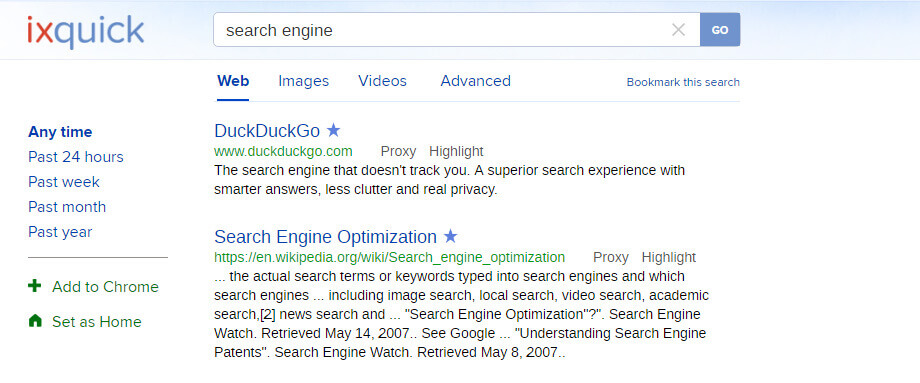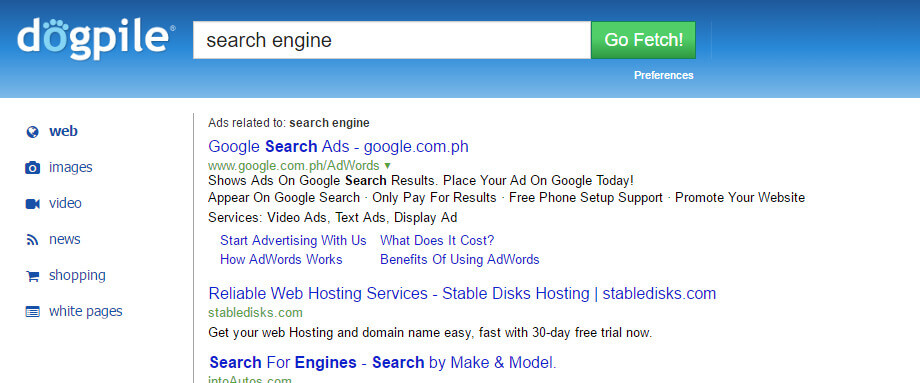Today’s internet would have a hard time functioning without the big search engines like Google, Yahoo, and Bing.
Since the dawn of the internet age, search engines have provided users with a simple way to browse the web. Instead of having to spend hours trawling through countless websites, search engines queue up relevant results for searchers.
Search engines have become a vital part of the internet’s structure, with web marketing experts putting a priority on search engine visibility when it comes to promoting their clients.
The average internet user is often exposed to the most prevalent search engines like Google and Yahoo but this isn’t really much of an issue.
However, for certain online marketing firms, relying on a small number of search engines may be counterproductive in promoting a brand to a wider audience. Meanwhile, other companies are not fans of the various algorithm changes implemented by the bigger engines which can adversely affect the way they do their marketing plans.
Sticking to the big-name search engines is standard for many of us in the industry. But there may be times where it is good to promote clients through alternative channels.
Here are a few of the bigger, though less-known alternative search engines thriving in the internet today that can help your digital marketing undertakings in the Philippines.
DuckDuckGo

Don’t let the funny name and whimsical duck mascot fool you.
While seemingly cheeky in appearance, DuckDuckGo has earned a place for itself.
Knowledgeable internet users consider it as a notable alternative search engine because of its ‘no-user-data-tracking’ feature.
A few industry experts think of this as a good thing, pointing out mostly to the bigger search engine’s notable use of user data tracking to determine how their search results come about in the future. DuckDuckGo provides a wide variety of privacy-focused features that allows users to stay under-the-radar when doing their internet searches.
What’s more, it can even maintain its no-track features when clicking on other sites during the same session. Another one of its key features is the option to provide a connection to the Tor deep web network via an easy-to-install plugin.
DuckDuckGo’s Interface

DuckDuckGo’s search interface pretty much follows the same setup for Google. It’s simplistic and straightforward, leaving no room for distraction for the user. Aside from this, it doesn’t fill its pages with unnecessary ads and links that would annoy you.
Results-wise, the engine only provides a single page of query returns; nonetheless, it can be more than enough for most users. The added features of Instant Answers and the carousel-style above-the-fold links to other relevant topics. This adds to the ease of use that DuckDuckGo provides.
If you are looking for a search engine that respects your privacy and keeps only the most relevant search results for you without much hassle, DuckDuckGo is the one for you. As for online marketers, learning the intricacies of DuckDuckGo can help you do a better job of promoting to your clients even in privacy-centered circles.
Yandex

It’s forgivable if you’re not familiar with Yandex. After all, it is known in only a few countries. – Mostly in Russia where it holds a large userbase; and was also created long before Google was founded.
It plays pretty much like Google in terms of calculating search algorithms. However, in terms of user experience, Yandex works more like Yahoo! or Bing. This is because Yandex is both a search engine and a portal that many Russian users go to when they start their day.
It offers many of the services that Google provides like mail, online data storage and multimedia. But since it is more familiar with the Russian identity, it appeals more easily to Russian users.
Yandex’s Interface

One thing you’ll notice with Yandex’s search results interface is the presence of favicons for each result entry. This helps users identify the pages easier, confirming their identities without the need to click on the page itself.
The real value of the Yandex engine, however, lies in its mother language. Yandex is a search engine that is fully optimized for the Russian language. As such, it can provide more relevant results for Cyrillic-based queries than other search engines.
This is significant for marketers and brands looking to rank higher in Russian-speaking markets; adapting to Russian language-based searches can go a long way in expanding your reach in these areas.
Boardreader

Forum pages and message boards may not be the type of places you go to for accurate and objective information, but they hold a treasure trove of opinions that can easily help you gauge the mood and trends in your target market.
However, scouring the forum pages can be quite a daunting task. Especially with so many channels and boards to look through, and a search function that may not be fully optimized for non-members.
Thankfully, a few startup owners have taken this into account and have come up with Boardreader, a search engine designed specifically to search forums and message boards. This unique search engine focuses only on online messaging and forum communities. It tracks down the most relevant results so that you don’t have to browse through the various forum topics on your own.
In addition, it also views other online social communities like Reddit, keeping you abreast of what people in larger online neighborhoods are talking about right now.
Boardreader’s Interface

Boardreader’s search environment isn’t as straightforward as Google or DuckDuckGo, but it does provide other features that set it apart from other engines.
Favicons are also present for the engine’s search results, a feature it shares with Yandex. Broadreader’s ‘advanced search’ settings also provide a time frame and language limit to narrow down your results further.
One thing that is unique to this engine is the ‘trends’ tab, which gives an overview of how your search terms are trending over a given period of time. While not as accurate as most online analytics tools, the ‘trending’ tab can provide you with a snapshot of how people in forums think about your target keywords.
Keep in mind that Boardreader’s results aren’t always sorted by date, popularity or relevance by default, so you might still have to do some tweaking on your own before you can get the results you need.
IXQuick

IXQuick is probably one of the more obscure search engines around today; it is possibly more obscure than Boardreader or DuckDuckGo in some circles.
However, this nifty little engine also offers its own set of privacy features that most users would appreciate and most marketers should learn to work with.
First and foremost, this engine does not store information; there will be no prompts asking for your email verification or alternative social media links. The engine also does not store or provide cookies, or little bits of information that websites look into to determine what content to suggest for you.
The best feature this engine provides is that user preferences are automatically reset after 90 days of inactivity, keeping your options safe from prying eyes.
IXQuick’s Interface

IXQuick’s search interface is fairly minimalist.
You can say that it looks like a Yahoo! results page without the ads popping up from time to time. Although it does have the occasional Google paid ad on top.
The maximum number of searches, UI language, and other features can be set up in a dropdown menu. But as mentioned earlier, it automatically resets if the site is not used for 90 days.
IXQuick isn’t as feature-packed as other search engines, but its simple design can be enough for some users. Its no-cookie policy also gives insights that can be useful for internet marketers.
Dogpile

Another playful search engine in terms of appearance and UI is Dogpile.
It looks more like a web design student’s first school assignment in terms of layout and design. However, this deceptively cute-looking page actually has a lot of stuff up its sleeves.
Primarily, it’s a search fetching service. This means it can fetch results for a keyword from various popular search engines and group them together by relevancy. Basically, all the results for Google, Yahoo, Bing, and other big engines like Yandex and possibly Baidu are curated here.
It gives the user a snapshot of how the search results appear in other engines. Instead of having to browse all the engines individually, Dogpile does it for you.
Dogpile’s Interface

Notice how all the tabs for the most relevant search types are already available from the start page.
Trending search ‘fetches’ are regularly updated to show latest search trends. The search results page offers a host of various results from many of the larger search engines that’s listed by relevancy.
The ‘preferences’ tab allows the user to customize how the results are shown. All in all, Dogpile doesn’t really stand out in terms of usage and searchability. But its primary feature of fetching results from bigger sites and pooling them together in order is a good thing to have for marketers who are keen on monitoring.
Search engines are a vital fiber in the internet’s growing web of connectivity. It shows your brand to relevant searches. However, sticking to a single search engine routine may be more divisive than what you can expect. Learn more about how various search engines behave, and you will surely go far in the online marketing game.